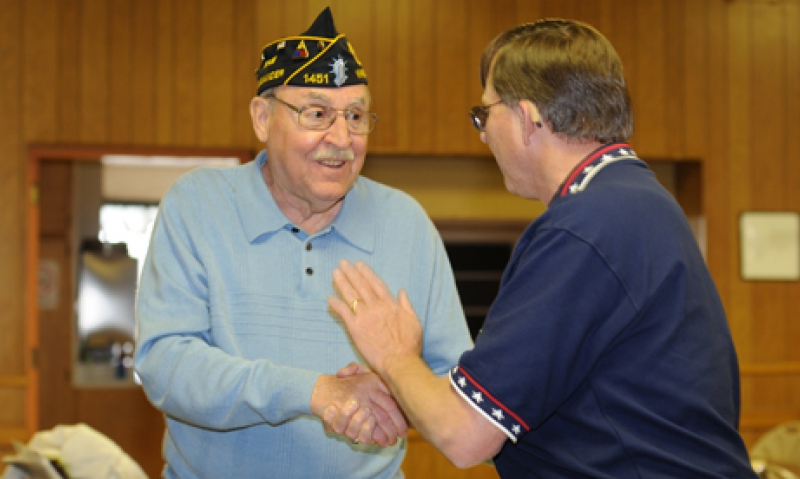
'A huge success story'
At first glance, American Legion Post 1451 in Wheatfield, N.Y., didn't appear to be a candidate for a revitalization effort. The post, chartered in 1946 and just a short drive from Niagara Falls, has more than 400 members, along with 240 members from the Auxiliary and Sons of The American Legion. There are nearly 20 American Legion Riders in the post.
But simple numbers don't tell the story.
"I can't get any officers, and I can't get anyone to fill any committees," two-term Post Commander George Kralick said. "We have a lot of World War II veterans - we lost 15 last year - and no one really wants to get involved in post activities.
"Commanders used to last one year here and then move onto a position in the county. But this is my second term. I can't get people interested. And I don't want to turn into a social club. I want this to stay an American Legion post. But I can't get it up and running."
Kralick said the post still sponsors a Boys State program, mostly because he pushes for it. The post also provides scholarships, has Memorial Day and Veterans Day ceremonies, and puts flags on graves. But that was about it for the formerly active post, which is why Kralick put in a request for a revitalization effort.
In late April , local and department Legionnaires, along with national staff, spent three days going door to door in the Wheatfield area to renew former members and transfer headquarters post members into Post 1451. Divided into groups, the membership teams made more than 250 contacts and added a total of 50 members to Post 1451, either through transfers, renewals or reinstatements. Another two members were added to a nearby post in what was the Legion's most successful revitalization effort in recent history.
"I'm so pleased with this effort. It's by far the best revitalization effort I've been on," said W. Michael Bowen, New York's department membership chairman. "Membership is the hardest easy job, as our national commander says. It's not that hard. All you have to do is ask. This was a huge success story, I think."
Bowen makes a point of asking about Legion membership everywhere he goes. Through the April revitalization effort, he had personally brought 63 new members into 16 different posts within the Legion, from ages 18 to 84. "What I've learned is that every veteran wants to belong. But you have to ask them first," Bowen said. "Every member counts. The more members we have, the more they'll listen to us in Washington, D.C., and across the country. Our membership impacts every aspect of our organization."
Before the first door was knocked on, groundwork was laid with letters and phone calls to current headquarters members and former members in the area. Meeting up at Post 1451, the membership team used membership delinquent lists, a department DMS list, and a national DMS list to plot out a course of action. Mapping out addresses, the team then broke into three groups and started knocking on doors.
But any questions about joining, renewing or transferring were prefaced by questions like, "We noticed you hadn't renewed, and we just wanted to check on you and make sure everything is OK." Offers to help in filing claims with the Department of Veterans Affairs were made. Sometimes, the membership teams simply listened to the veterans and the stories of their service. Tears came to the eyes of one World War II as he recalled losing his best friend while in combat in the Pacific Theater of Operations. Another talked about wanting to belong to an organization that could make a difference.
"You need to ask, but you also need to listen," Bowen said. "Listen to what they want. Find out what their needs are. You end up finding the Legion has a lot of what they need or want."
While the initial effort was successful, the key to maintaining any revitalization effort comes with following through. Efforts were made to encourage Legionnaires at the county level to stay in contact with Kralick and perhaps attend future meetings to keep the momentum going.
"Membership, like anything else, can be contagious. New, active members can benefit the post, the country and the district," Bowen said. "It's not just the quantity of the numbers; it's the quality," I really think we got some people in who are going to be leaders and active in this post."
That possibility is what pleased Kralick the most.
"I couldn't be happier with the results," Kralick said. "Now we can get back to doing what our post used to do."
